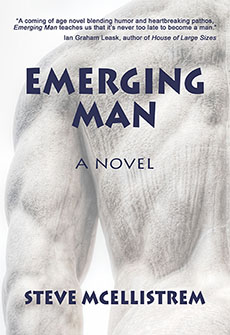We’ve been told for decades that exercise is good for us, that it will keep us feeling better, healthier, and even lengthen our lives. But is that really true?
Certainly exercise strengthens the heart and improves circulation, which raises the oxygen levels in the body. It lowers the risk of heart diseases like high blood pressure and high cholesterol, and as we age, it reduces the amount of bone loss we might otherwise experience. It also keeps our weight down and improves our metabolic rate, giving us more energy.
However, exercise can also be bad for us, especially if we overdo it. It can lead to greater injuries, especially to the joints, and even a shorter lifespan by, for example, damaging our heart and arteries. People who run ultramarathons are more likely to die from heart-related diseases than those who exercise moderately.
Another way that excess exercise harms us is by suppressing our immune system. For a period of up to three days after intense exercise, viruses and bacteria have an easier time infiltrating the body. It’s been shown that people who overexercise have more upper respiratory tract infections than those who got only moderate exercise.
Further, too much exercise can lead to exercise addiction, making one feel anxious or even tired when a workout is missed. And a compulsion to exercise is common among sufferers of anorexia nervosa. Moreover, exercise can result in serious injuries like paralysis, broken bones and even brain damage, from sports as ubiquitous and seemingly safe as soccer or baseball.
Athletes have an increased risk of contracting ALS. Mathletes do not.
Generally speaking, the higher one’s metabolism, the shorter one’s lifespan. This holds true for humans as well as other animals. In an experiment conducted with flies, those that were prevented from flying by being kept between two plastic plates lived up to three times longer than flies that were allowed to fly.
So should we exercise or not? The answer, I suppose, depends on what it is one wants from life. The optimal amount of exercise for most of us would probably be moderate activity a few times a week, or light exercise every day – like casual walking or gardening or cleaning one’s home.
For anything more than that, we ought to take into account the level of enjoyment the activity provides and weigh that against the long-term detrimental effect the activity will have on our bodies.
As for being slothful, I can’t recommend that either. Humans didn’t evolve as sedentary beings. Our distant ancestors did enough to stay alive, moving across the savannah, hunting and gathering, conserving energy whenever possible. Our lifestyles today usually allow us to conserve energy for the bulk of the day, so a little exercise brings us closer to our evolutionary ideal with respect to movement.
So if you’re interested in taking up a sport, maybe try something intellectually challenging but physically not, like chess.
